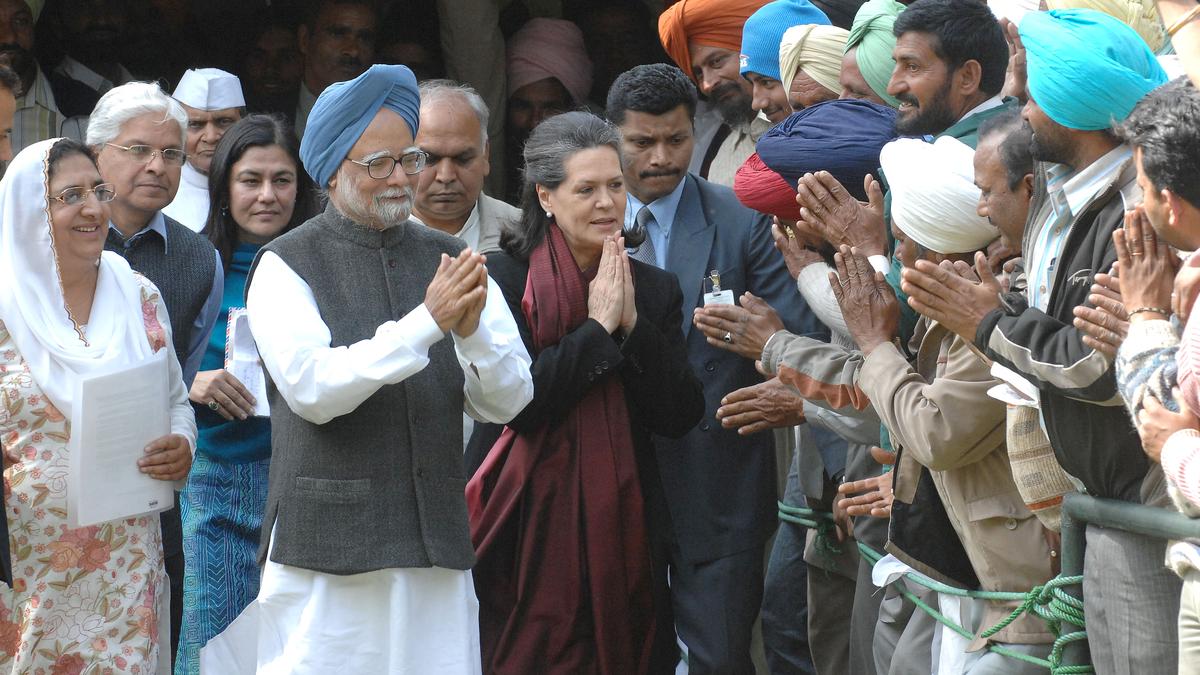India lost its foremost thinker and architect of its new economy in former Prime Minister Manmohan Singh late night on Thursday. Singh was admitted to the All India Institute of Medical Sciences where he breathed his last, surrounded by family members and devoted party colleagues, former Congress President Sonia Gandhi and Priyanka Gandhi along with other senior leaders. Senior BJP leaders including party president J. P. Nadda also rushed to the hospital and condolences started pouring in from across the world.
‘Sudden loss of consciousness’
AIIMS said in a statement that Singh was being treated for age-related medical conditions. It said he had “sudden loss of consciousness at home on December 26 and resuscitative measures were immediately started at home.” Singh was brought to the Medical Emergency at AIIMS at 8:26 pm but “despite all efforts, he could not be revived and was declared dead at 9:51 pm.”
Ninety-two-year old Singh stands tall as one of India’s most distinguished leaders, whose contributions have indelibly shaped the country’s economic and geopolitical trajectory.
Former Prime Minister Dr Manmohan Singh handing the award for businessline Changemaker of the Year 2019 to then Finance Minister Arun Jaitley.
| Photo Credit: KAMAL NARANG
A true statesman, visionary leader with humility, Singh rose to prominence through sheer intellect and integrity, leaving an enduring legacy as the architect of India’s economic liberalization and a visionary statesman.
Born in on September 26, 1932 in Gah, now in Pakistan, Singh’s journey exemplifies resilience and dedication to public service.
He held the distinction of being the first Sikh to occupy the Prime Minister’s office and was the first Prime Minister since Jawaharlal Nehru to be re-elected after completing a full five-year term.
He exhibited academic brilliance from a young age, earning his Bachelor’s and Master’s degrees in Economics from Punjab University in 1952 and 1954, respectively. He furthered his studies at the University of Cambridge, obtaining a First Class Honours degree in Economics in 1957, and later completed his D.Phil. in Economics from the University of Oxford in 1962.
An economist by training, he held key positions in academia and government before taking on the transformative role of India’s finance minister in 1991. This period marked a watershed moment in India’s history, as the country faced a severe balance of payments crisis. Singh, under the leadership of then-Prime Minister P.V. Narasimha Rao, unveiled a series of bold economic reforms that dismantled the License Raj, opened up the economy to foreign investments, and liberalised trade policies.
In his historic 1991 Budget speech, Singh captured the nation’s imagination with a profound quote from Victor Hugo: “No power on earth can stop an idea whose time has come.” These words symbolized India’s awakening to its potential as a global economic powerhouse. The reforms ushered in a new era of growth, entrepreneurship, and modernization, laying the foundation for India’s emergence as one of the fastest-growing major economies in the world.
Singh’s professional journey is a testament to his profound impact on India‘s economic landscape. He began his career with the United Nations Conference on Trade and Development (UNCTAD) from 1966 to 1969, followed by a tenure as a professor of International Trade at the Delhi School of Economics. His expertise led to significant roles within the Indian government, including Chief Economic Advisor (1972–1976), Governor of the Reserve Bank of India (1982–1985), and Deputy Chairman of the Planning Commission (1985–1987).
Singh’s tenure as Prime Minister from 2004 to 2014 further cemented his reputation as a transformative leader. One of his most remarkable achievements was navigating the contentious India-US Civil Nuclear Agreement during his first term. The deal, signed in 2008, ended India’s decades-long isolation in the global nuclear order and granted it access to nuclear technology and fuel for civilian purposes. Despite facing significant opposition from political allies and adversaries alike, Singh stood firm, demonstrating exceptional courage and statesmanship. “I am convinced that this is an agreement that is good for India and the world,” he asserted, emphasizing the long-term benefits for the country’s energy security and international standing.
Commitment to the nuclear deal
Singh’s unwavering commitment to the nuclear deal, even at the risk of his government’s survival, was a testament to his belief in pursuing policies for the greater good, regardless of political expediency. Reflecting on the challenges he faced during this period, Singh famously remarked, “History will judge me kindly.” This statement encapsulated his confidence in the enduring value of his decisions, even amid criticism and controversy.
A leader known for his quiet dignity and humility, Singh’s legacy extends beyond policies and reforms. He epitomized the values of integrity, intellect, and service, earning respect both domestically and globally. While his tenure was not without challenges, including criticisms over governance issues in his second term, Singh’s contributions to India’s economic transformation and global stature remain unparalleled.
Manmohan Singh’s journey from a modest background to becoming the steward of India’s economic destiny underscores his identity as a true “son of the soil.” His vision, courage, and foresight have left an indelible mark on the nation, ensuring that his legacy will indeed be judged kindly by history.








Leave a Comment